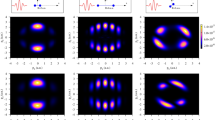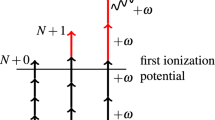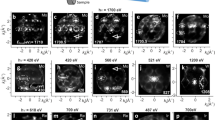Abstract
IT is well known that the emission of photoelectrons by X-rays is not symmetrically distributed about the plane normal to the rays, the photoelectrons possessing an average momentum in the ‘forward’ direction. I showed about a year ago (NATURE, Jan. 28, 1928, p. 134) that, contrary to general supposition, the average forward momentum, µ, of a photoelectron is, according to experiment, not equal to the momentum hv/c of an incident quantum, but is appreciably greater. Sommerfeld in his recently published book, “Atombau und Spektrallinien, Wellenmechanischer Ergänzungsband” (1929), has treated the problem theoretically by the wave mechanics, and the purpose of the present note is to show the remarkable agreement of Sommerfeld's result with experiment.
This is a preview of subscription content, access via your institution
Access options
Subscribe to this journal
Receive 51 print issues and online access
$199.00 per year
only $3.90 per issue
Buy this article
- Purchase on Springer Link
- Instant access to full article PDF
Prices may be subject to local taxes which are calculated during checkout
Similar content being viewed by others
Author information
Authors and Affiliations
Rights and permissions
About this article
Cite this article
WILLIAMS, E. The Average ‘Forward’ Momentum of Photoelectrons. Nature 123, 565–566 (1929). https://doi.org/10.1038/123565b0
Issue Date:
DOI: https://doi.org/10.1038/123565b0
Comments
By submitting a comment you agree to abide by our Terms and Community Guidelines. If you find something abusive or that does not comply with our terms or guidelines please flag it as inappropriate.



